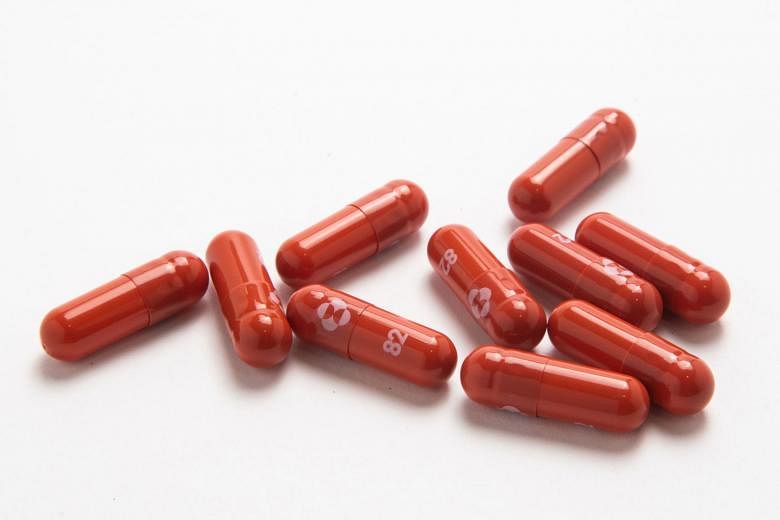WASHINGTON (BLOOMBERG) - The US Food and Drug Administration will send Merck's Covid-19 pill to an advisory committee for review, using a public forum to discuss any safety concerns ahead of a potential authorisation.
The FDA announced the hearing for Nov 30, saying it would weigh data on the use of the drug to treat mild-to-moderate cases in high-risk adults.
"We believe that, in this instance, a public discussion of these data with the agency's advisory committee will help ensure clear understanding of the scientific data and information that the FDA is evaluating to make a decision about whether to authorise this treatment for emergency use," Patrizia Cavazzoni, director of the FDA's Centre for Drug Evaluation and Research, said in a statement.
The agency opted not to skip the advisory committee step, which it occasionally does when it's racing to get a drug to market quickly.
Safety concerns have been raised by some experts, and the committee will weigh in before the FDA makes a decision, one of the people said.
The FDA will present its perspective on the company's data, it said. "The meeting was scheduled as soon as possible following the submission of the EUA request by the company," the FDA said in a statement.
Merck and its partner Ridgeback Biotherapeutics sought emergency use authorisation in the US for molnupiravir earlier this week, a step toward clearance for a pill meant to treat Covid-19 in high-risk adults.
Kenilworth, New Jersey-based Merck agreed in June to a US$1.2 billion supply deal to provide the US government 1.7 million courses of treatment once the drug gains FDA authorisation or approval.
Molnupiravir works by introducing errors into viral genetic material that eventually make the pathogen defunct.
Some experts have questioned whether and how the drug may also impact growing cells in the human body, potentially raising the risk of birth defects, for example.
Nicholas Kartsonis, senior vice president of clinical research for infectious diseases and vaccines at Merck Research Labs, said in an interview last week that he's been "very impressed" by the drug's safety profile and that it looks "really clean."
In trials, more people stopped taking the placebo due to serious adverse events than the drug itself, he said.
Kartsonis added that Merck has shared publicly a limited amount of data regarding the drug's safety, but that the company intends to report more soon. "We send these things to health authorities, and we'll work with them as they look at it carefully," he said.

